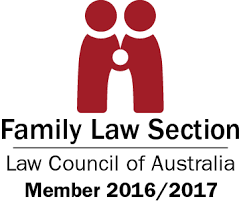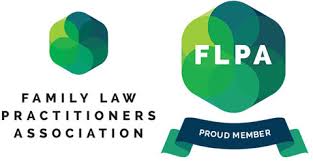Parenting Orders
Australia’s leading fixed Fee Consent Orders Solution for amicable Property Settlements.
No hidden fees, no drawn-out process, just fast, affordable results for your Consent Orders, servicing all of Australia.
Parenting Orders - How can we help?
- We do not try to change your agreement. We are a neutral party happy to with both parties for a quick resolution.
- Fast. Our Consent Orders will be prepared in 24Hrs at a fixed fee.
- Reasonably priced. You can obtain a Property Settlement from $2455
- Professional. We are Accredited Specialists in family law (NSW and QLD).
- Easy to deal with. We offer you a fully remote service with Rachel and Brendan.
- Comprehensive. We complete every step of the process – Application for Consent Orders and Minute of Order.
- Respectful of your wishes. There will be no further negotiation between parties – we just draft your agreement with no interference.
- All documents are digitally signed reducing delay.
Whatever stage of life you’re passing through, we can document and finalise a legal arrangement to help you find certainty.
What can a Parenting Orders deal with
The Family Law Act says that parenting orders can deal with any of the following topics.
-
Who can live with the child - 'live with' orders?
-
The amount of time the child can spend with each parent (and sometimes with others) - 'time with' orders.
-
Parents (and sometimes others) make decisions about their children - 'parental responsibility' orders.
-
'Communication orders' - how the child should communicate with each parent (and sometimes others).
-
Parenting orders that deal with other issues
-
How the parents will consult: verbally or in writing, how they will make decisions together
-
The steps to be taken before applying for an order that varies the existing parenting orders.
-
Any aspect of parental responsibility for a child, including the child's care, welfare, and development.
The guiding principle that the Family Court will look at in consideration of your parenting orders or Children’s orders is if the proposed orders are in the children’s best interests.
Parenting Orders - What topics can they cover?
-
Parental responsibility
-
Living arrangements for children
-
Special occasions
-
Changeover between parents
-
Taking Care of the children
-
The Child and other people
-
Parents behavior with the children.
We work with your accountant to ensure that your agreement is compliant with your legal structures. We recommend having your account review the document and are very happy to assist with this.
Parenting Plans v Consent Orders
-
Parenting plans are agreements between parents that deal with matters such as parental responsibility and arrangements for children. They can be made more cheaply and with less formality than parenting orders and can relieve a party from obligations under an existing parenting order.
-
A parenting consent order is a legally enforceable arrangement between parents that addresses specific behaviours. It may also prohibit a parent from a specific behaviour, such as denigrating the other parent
-
The Family Law Act says that parenting consent orders can deal with any of the following topics: who the child can live with, how much time the child can spend with each parent, decision-making powers, communication, and other aspects of parental responsibility for a child.
Fixed Fee, Full-Service Consent Orders from $2970 – Property Settlement
We assist with amicable Property Settlements delivered in 24 hours at a fixed fee. No matter what the agreement is we can draft the agreement.


Fixed Fee Parenting Orders – $2420 plus court fees
Kate Austin Family Law will prepare Parenting Orders to make your parenting plans legally binding in just 24 hours. We are Accredited Specialists in Family Law with over 20 years of experience in creating legally binding Consent Orders across Australia. We will follow your instructions to the letter to ensure we document your agreement.
Fixed Fee Property and Children’s Consent Orders – $3740 plus court fees.
By using the same application and court fees, filing both Parenting and Property Agreements is a very cost and time effective way of finalising your Family Law agreement.

Questions on Consent Orders?
Having practiced family law for 20 years, we know all the ins and outs. Many clients have questions about how Consent Orders and other financial agreements work in their particular situation. If you’d like to know how these agreements help you move on with life, get in touch and schedule a free, no-strings-attached chat.


We work with amicable parties. – we don’t represent either of you.
As a neutral third party, we do not represent either party. We do not offer legal advice but rather procedural advice. It is up to each party to seek legal advice if they so desire. If there is any uncertainty, we encourage parties to seek independent legal advice.
Kate Austin’s family law speciality is amicable separations, which we document by obtaining consent orders. Parties do not need independent legal advice, but clients are free to seek it.
We work with amicable parties. – Our clients agree for a higher cause – Their Children
While parents may have decided not to remain in a relationship, the joint responsibilities of raising children continue. All parents understand that flexibility is key to accommodating the needs of developing children. Parents who maintain a good, open, honest relationship with the management of their children together with Children Orders allow a framework to be developed.
Things to know before you call Kate Austin Family Law for Consent Orders
We have a strict non-conflict policy – We are family lawyers who won’t fight.
If you’re looking for a family lawyer to help you draft your agreement with consent orders, we are very happy to assist you. There are, however, some important things you should know before calling Kate Austin Family Law:
We have made a deliberate choice to avoid involvement in disputes between parties. With a quarter-century of experience in Family Law, we have contributed enough to resolving conflicts. Our future now lies in a different direction. If you don’t have an amicable relationship with your former partner, our firm may not fit you.
When you contact us, we will respond that we are “too old and too tired to fight.” We are not necessarily too old, but we prefer to allocate our energy to more constructive endeavours than combat.
We do not interfere with your Parenting agreement.
Our clients have agreed amicably. For some, this happens quickly, for others, it doesn’t. We deeply respect the effort that you have taken to finalise your situation. So long as we believe that your “agreement is fair” and as we act as a neutral party, we will never advise one party to change the agreement. We do not offer independent legal advice.
In conjunction with a mediation session, our fixed-fee consent orders provide excellent value for your family law matters and may be one of the most cost-effective and timely ways to resolve them without having to go to court.
We only do consent orders for parenting matters.
We only work with clients to draft consent orders. If you require Parenting orders and want to make them legally binding, your only option is Consent Orders. You cannot draft Binding Financial Agreements for children’s agreements.
We service all of Australia.
So long as an Australian Family Court can determine their matter, we assist clients throughout Australia. Family law is a national law governing all Australians equally. The same rules apply in all states ( with some exceptions in Western Australia). A registrar within any state (except Western Australia) can determine your consent orders. We offer assistance in Sydney, Melbourne, Canberra & Brisbane; contact us today for your quote.
We only offer fixed fees for our parenting orders.
Our approach to fees is straightforward and transparent. We only charge fixed fees, which we disclose in advance. This eliminates any potential confusion or disputes over fees. Once you agree to our quote, we will provide you with a trust account request for that amount. The funds will remain in your trust account until the matter is finalized, at which point we will pay your account, usually within a week or two. Our fixed fees policy is designed to ensure a smooth and conflict-free process.
We will only accept your matter if we believe it’s in the children’s best interests.
With over 25 years of experience in Family Law, we have successfully handled numerous matters, each one unique. We take pride in our track record of never having a matter ejected by the Family Court. While we can’t guarantee the court’s decision, our extensive experience allows us to select matters that the Family Court is likely to approve.
How long do Children's Consent Orders take?
How long does it take a client to Submit Intake forms?
Generally, it will take clients 30-40 minutes to collect all the required information for a property Settlement.
How long will Kate Austin Take to draft the agreement?
- We will take 24 hours to draft the agreement.
Changes required?
We will have these completed in 24 hours.
Superannuation approval
Superannuation funds have 28 days to approve proposed orders.
The Family Court
- The Family Court has no set time; however, we keep a current metric on average times. 2023 and 24 have been running at an average of 4.2 weeks.
What is the Kate Austin Property Settlement process?
Step 1. Talk to us. We work to help people. We need to understand if we can help you, and you need to be comfortable working with us. If we think you can help, we will say so. If not, we may be able to provide you with some suggestions.
Step 2. – We will send you our intake forms and fee disclosure – Talk with your former partner and make sure everyone is comfortable.
Step 3. – Complete the intake forms – we provide these for you. They are online and a question answer format.
Step 4 – We draft your agreement in 24hrs and make changes in a further 24hrs
Final Step—We will send you your agreement to sign electronically using codes on your mobile. Once you have signed, we will submit it to the Family Court. The Family court should approve your agreement within 4 weeks or less.

Associations of Which We’re Part
As experienced family lawyers, we’re also a member of Australia’s leading law associations.





Questions on Consent Orders?
Having practiced family law for 20 years, we know all the ins and outs. Many clients have questions about how Consent Orders and other financial agreements work in their particular situation. If you’d like to know how these agreements help you move on with life, get in touch and schedule a free, no-strings-attached chat.
Why do People Choose Kate Austin for their Property Settlement?
01
We are experienced.
We have over 25 years of experience in family law. Since moving to amicable Family Law, we have completed 3280 Family Law agreements approved by the Family Court. (July 2024) We can draft any agreement you have come to concerning your parenting agreement.
02
We are very focused on client service.
As a small business, we need to earn people’s trust. We do this by doing what we say, and when we say, we will do it. We will advise you what day your orders will be delivered, and you will receive them by close of business that day.
03
Our fees are always fixed.
To avoid conflict, we are very transparent with our fees. You are always provided with a fixed fee agreement and the terms of our service. Please review our quote page to see how much we charge for your matter.
04
We are a neutral party.
We have made a conscious decision not to interfere with your agreement. Our job is to work with both of you to have your Consent Orders approved by the Family Court. No sides and No judgement.
General Questions about Parenting Consent Orders
Parental responsibility, a term that encompasses a multitude of duties, powers, responsibilities, and authority, is the cornerstone of a parent’s relationship with their child.
If parental responsibility is not specificall y mentioned , each parent ordinarilycan make their own decisions without consulting each other.
Some parents wish to establish a legal obligation to jointly make decisions about significant long-term issues, they can do so by applying for an order for equal shared parental responsibility.
If parents don’t want to create that obligation but would like each parent to have equal parental responsibility, they could either make no order about parental responsibility or order each parent to retain parental responsibility.
Alternatively, suppose parents want to transfer parental responsibility to one parent alone, or allocate some aspect of parental responsibility to one parent. In that case, they should make orders in those terms.If clients want to deal with a specific item, such as which school the child will attend, the order can be written so it deals with that issue.
Living arrangements usually specify when the child will be with one parent or the other. It is convenient to set out arrangements every week or fortnight. When a child lives or spends time with one parent, that parent is responsible for looking after the child.
There are usually arrangements for special occasions in parenting orders, like Christmas, religious holidays, and birthdays. Orders typically make provisions for the child to spend time with each parent on the child’s birthday and with a parent on a parent’s birthday.
A parenting order should address changeover arrangements – how the child gets from one parent to another. It’s often a good idea to make arrangements that don’t involve parents meeting each other when relationships are strained. A lot of services are available to help with changeovers, like Child Contact Centers
There can be issues between parents about the child’s care. One parent might be worried about the other’s behavior, such as if they use drugs or alcohol, or if the child is allowed to take public transportation on their own. It’s possible to include such things in parenting orders.
Parents might want to include what should happen if they cannot take care of their kids. It’s best to talk to the other parent about what’s best for the child at that time. It could specify that each parent has to give the other 24 hours’ notice if they can’t take care of the kid or the kid can be cared for by a relative.
A parenting order can control how the child communicates with the parents or other people. Child could, for example, speak with the other parent by telephone or other means at a certain time of day when one parent is with the child.
A parenting order can address a child’s relationship with other people. A child could go on holidays with cousins or other family members, or spend time with a grandparent on their birthdays. In addition, parental orders can ensure that the child doesn’t have to stay with a particular person alone.
Sometimes, parents worry how the other parent will treat their child. The parent with the child can get a parenting order that sets out what behavior they should avoid. Such ‘non-denigration’ orders are pretty standard when a parent talks badly about the other parent.
Consider whether there’s a need for such legally enforceable orders, or whether issues like these are better resolved by negotiation, counseling, or a parenting plan.

